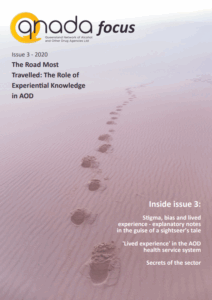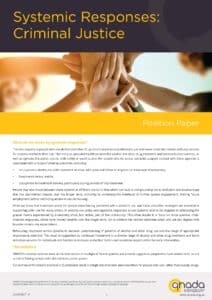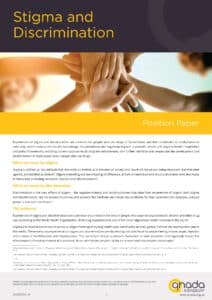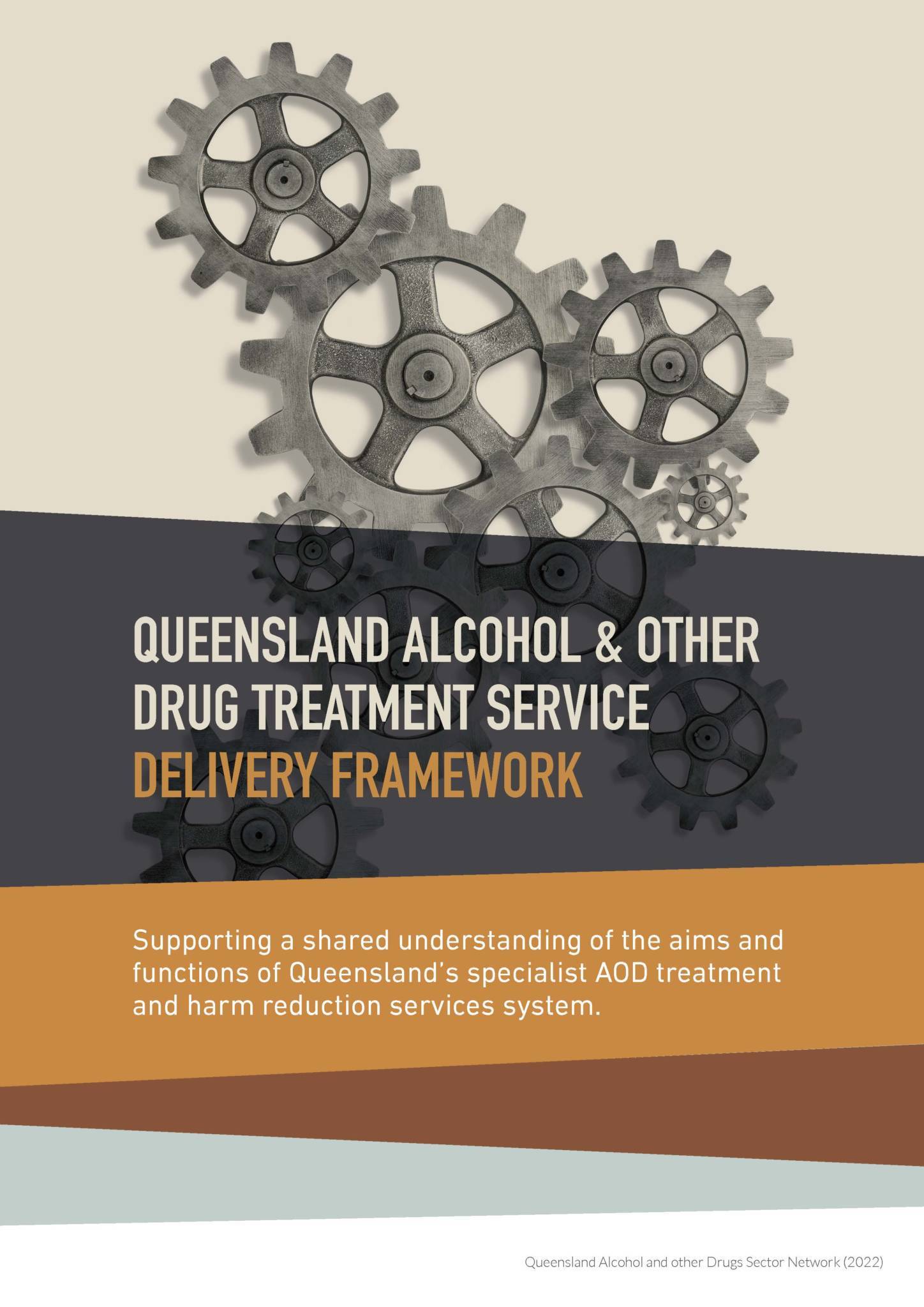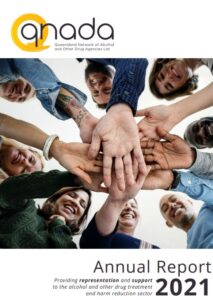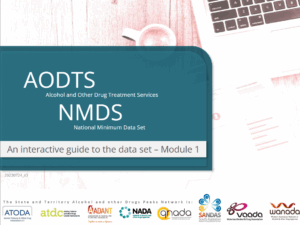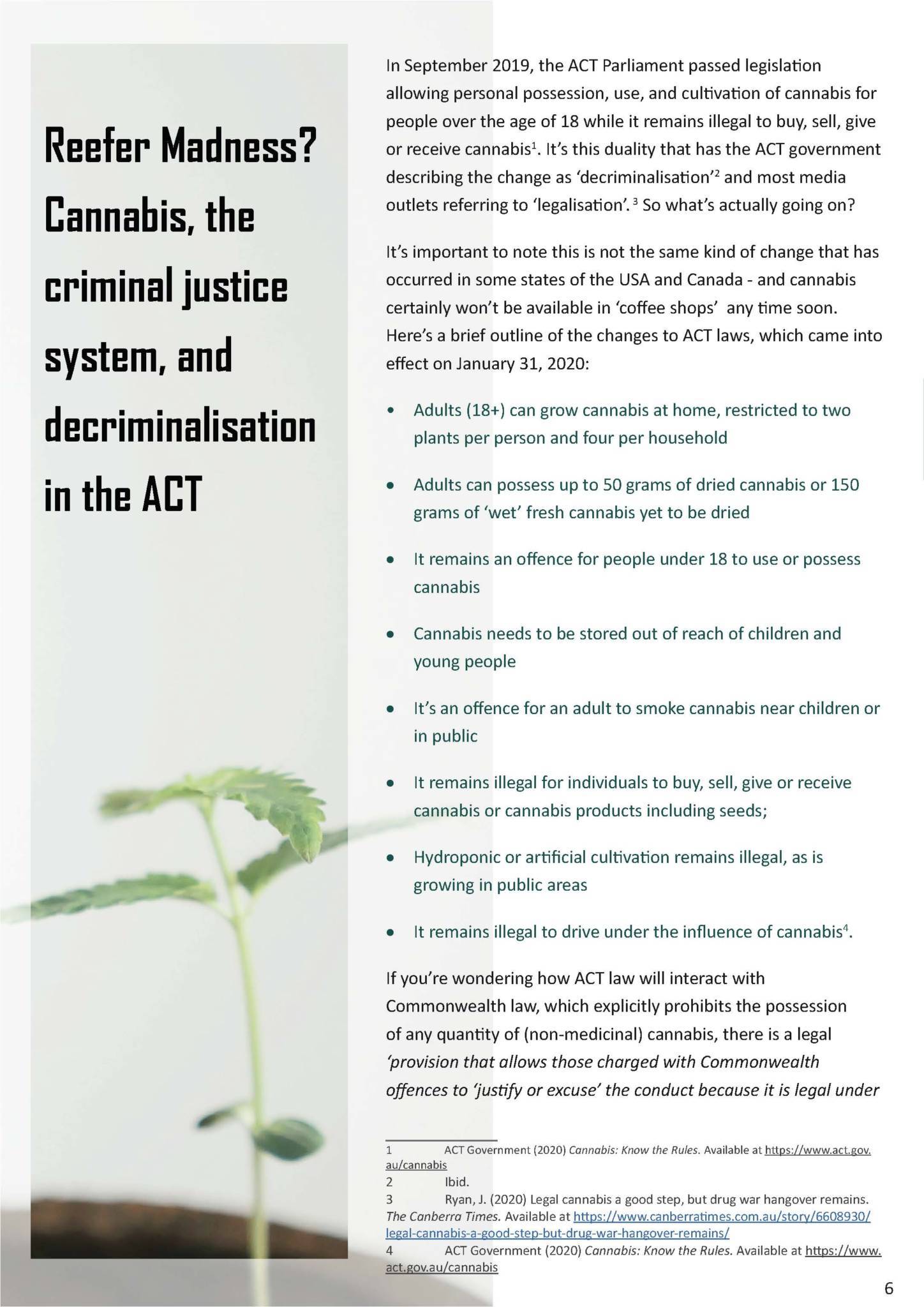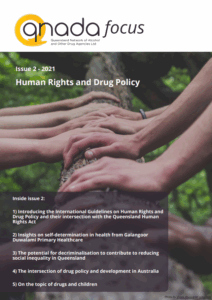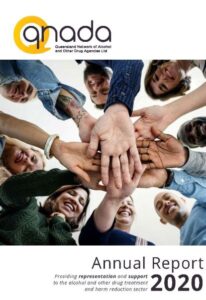News
New policy position paper
This Systemic Responses: Criminal Justice position paper is the next iteration of the initial Systemic Responses position paper endorsed by the QNADA board in 2019. Our work on the Responsive Systems project since then has developed our position to be able to separately address issues in the criminal justice system, youth justice system, and child safety system as each has unique intersections with our sector and impacts people who use drugs differently. We want to do a deep dive into each of these systems and suggest how they could improve their responses to better align with evidence on what works to improve the wellbeing of individuals and communities.
Please click on the image below to read and download the full paper.
Good Nutrition in AOD Recovery: Online learning + Quick ‘n Easy Cooking Guide
QNADA is pleased to share the Good Nutrition in Alcohol and Other Drug Recovery resources, which are made up of a recipe guide and an interactive online learning package, aimed at building service user capacity to have a healthier recovery. QNADA developed the resources following conversations with alcohol and other drugs services which pointed out the ways nutrition can lose importance for clients in the context of other recovery priorities. As the resources point out, good nutrition is an important component of recovery because it directly relates to mood and can influence substance cravings.
The guide and training module also provide information about the overlap between nutrition, brain, and body function during recovery, and how certain foods can help support recovery by providing the building blocks for serotonin, dopamine and norepinephrine. The guide uses a motivational approach to have clients weigh up the potential costs and benefits of their current food routine and changing it to a new one.
It provides some simple, budget friendly, and easy to follow recipe suggestions that provide a starting point for cooking some tasty meals.
We hope this guide will help to make focussing on nutrition easier for both workers and clients.
Access the online learning here, or download the resources here.

Queensland Alcohol and other Drug Treatment Service Delivery Framework
The Queensland Alcohol and other Drugs (AOD) Sector Network is excited to officially announce the release of the 2022 Queensland Alcohol & Other Drug Treatment Service Delivery Framework (TSDF).
Updated from 2015, this iteration outlines the contemporary approach to AOD treatment and harm reduction in Queensland and brings it in line with recently released national frameworks. It is designed to support a shared understanding of the aims and functions of Queensland’s specialist AOD treatment and harm reduction services system.
The updated TSDF was developed through comprehensive sector consultation and review. It is relevant to anyone with AOD in the scope of their work, or who simply wants to know more about Queensland’s AOD services system, including funders and commissioners of services, and other service sectors.
The Queensland AOD Sector Network thanks everyone involved in the update of the framework for sharing their time, wisdom, and expertise over the last two years. We look forward to continuing to support the ongoing growth and development of Queensland’s AOD services system.
If you have any questions or wish to discuss the latest TSDF, please contact se***********@*******rg.au.
Download a copy of the Framework here.
———————-
The Queensland AOD Sector Network is:
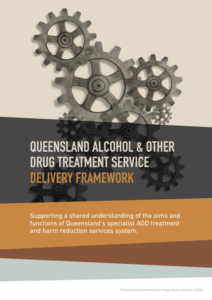
It’s AODTS NMDS collection time!
Hi members! It’s AODTS NMDS collection time! We have some online learning modules available on our website if this process is new to you or if you want to refresh your knowledge – https://qnada.org.au/aodts-nmds/
Alternatively just give us a call if you have any questions on 07 3023 5050!
#ThrowbackThursday: Reefer Madness? Cannabis, the criminal justice system, and decriminalisation in the ACT
In September 2019, the ACT Parliament passed legislation allowing personal possession, use, and cultivation of cannabis for people over the age of 18 while it remains illegal to buy, sell, give or receive cannabis. It’s this duality that has the ACT government describing the change as ‘decriminalisation’ while most media outlets referring it to ‘legalisation’. So what’s actually going on?
Read more about this QNADAfocus article here: Reefer Madness? Cannabis, the criminal justice system, and decriminalisation in the ACT (page 6)
QNADA Strategic Plan 2021 – 2023
QNADA Strategic Plan 2021 – 2023 is here! The revised strategy recognises our organisational values of integrity, accountability and diversity and more explicitly acknowledges that our work occurs across three main streams of working with member organisations, working with policy makers and working with systems managers to support the delivery of high quality AOD treatment and harm reduction services in Queensland.
Click on the image below to view the full plan.
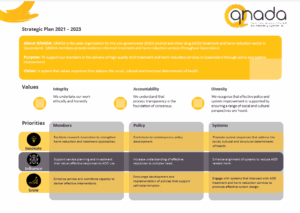
QNADAfocus Issue 2 2021 is out now!
This issue’s theme is Human rights and drug policy, and it includes articles on:
- Introducing the International Guidelines on Human Rights and Drug Policy and their intersection with the Queensland Human Rights Act
- Member Spotlight: Insights on self-determination in health from Galangoor Duwalami Primary Healthcare
- The potential for decriminalisation to contribute to reducing social inequality in Queensland
- The intersection of drug policy and development in Australia
- On the topic of drugs and children
Click on the photo below to view the full newsletter.
#ThrowbackThursday: Hoping for the best: disaster preparedness
With the recent extreme weather conditions and the ongoing uncertainty of COVID-19, emergency preparedness has become an essential consideration to ensure service continuity for the AOD sector and for the clients.
Read more on #QNADAfocus article: Hoping for the best: disaster preparedness – https://qnada.org.au/wp-content/uploads/2020/04/Fin_20200421_Issue-2.pdf
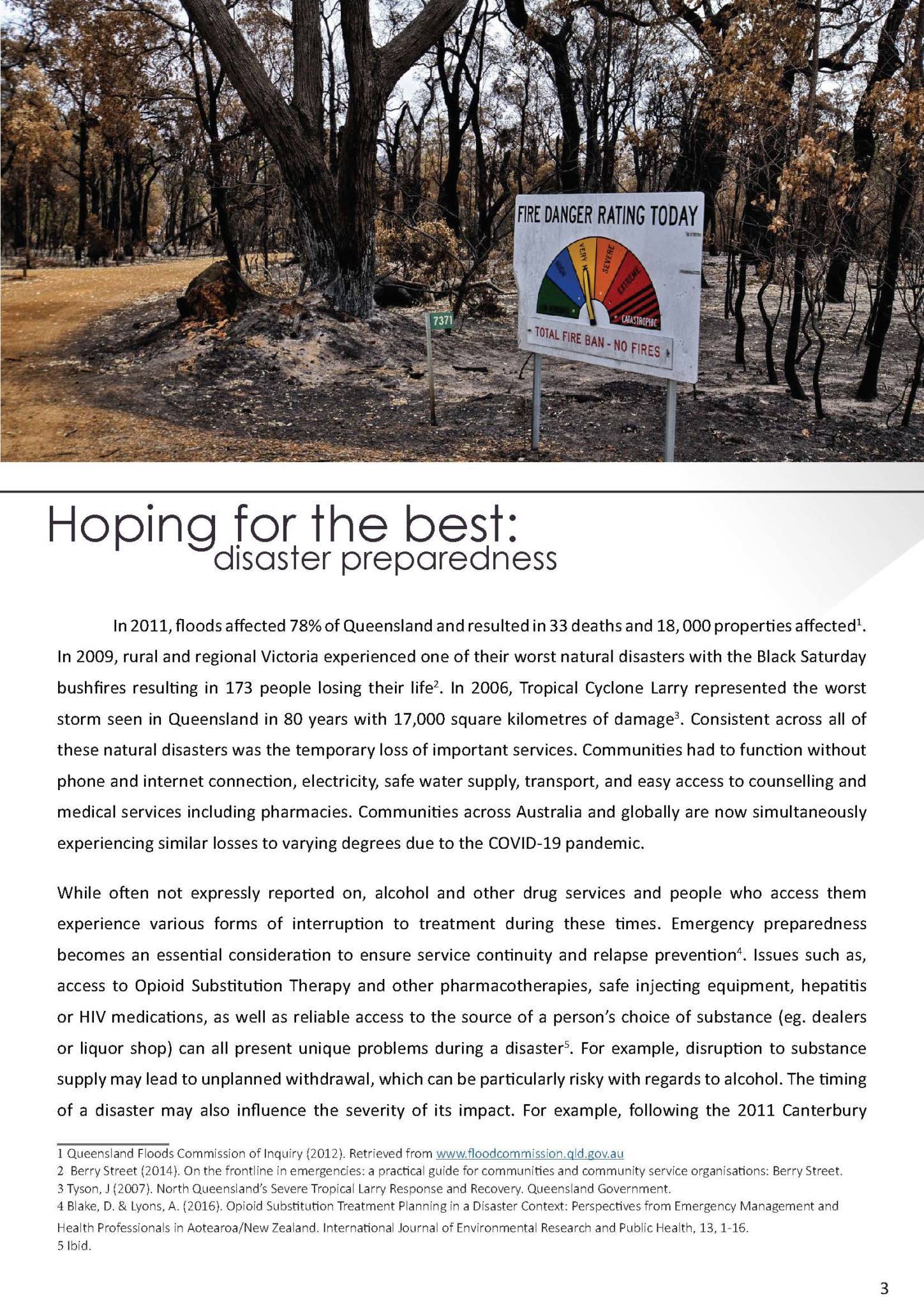
#ThrowbackThursday: Stigma, bias and lived experience
Everyone holds implicit biases that we aren’t actively aware of, but they do permeate and informs our everyday behaviours and attitudes. The impact of negative implicit bias and stereotype is pervasive across all important life domains (access to health care, employment etc.) and it is one of the most important barriers to overcome for people who experience problematic alcohol and other drug use.
Read more on #QNADAfocus artcle: Stigma, bias and lived experience – explanatory notes in the guise of a sightseer’s tale
